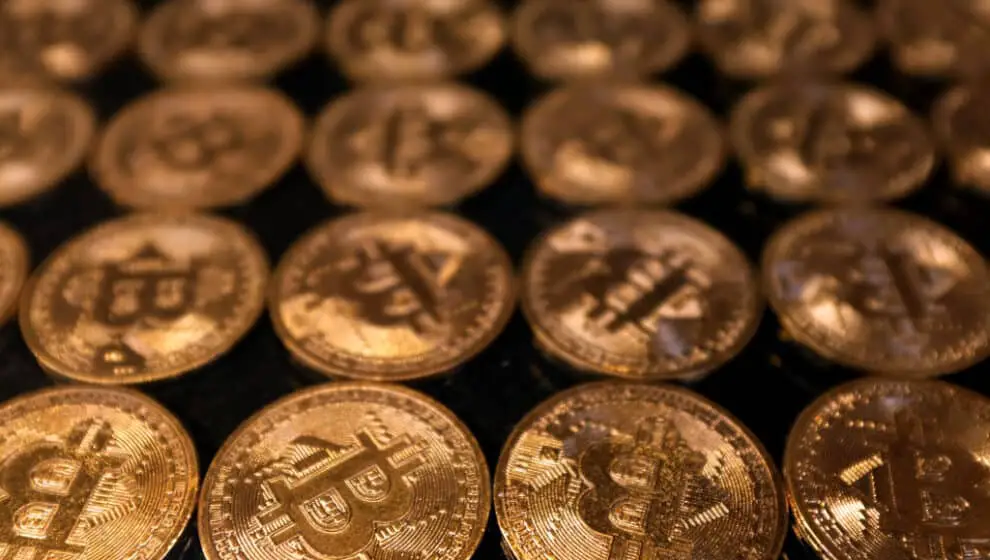The reputation of Bitcoin and cryptocurrencies have improved significantly in the past decade—nearly overcoming its original reputation as a tool for illegal drug dealing.
Key Details
- In the past decade, Bitcoin has grown from a disreputable money-laundering tool into a highly promoted investing asset among business leaders.
- The value of Bitcoin began to spike in 2017 and has increased from valuations below $1,000 to a peak of $65,000 in November 2021, drawing positive attention from investors, before dropping down to around $16,000 in 2022.
- As we previously reported, Bitcoin has continued to outperform the market in spite of the pressures of inflation and ongoing banking crises. Bitcoin’s value has grown 41% year-to-date. It is now priced at $28,000 per coin.
- The asset continues to face an uphill battle with critics, with politicians like Senator Elizabeth Warren (D-MA) tweeting on March 29 that she is “building an anti-crypto army.”
Why It’s Important
Cryptocurrency is becoming a more pressing issue. Prior to last year’s midterm elections, one poll found that 84% of voters were weighing crypto policies in their voting decision, despite only 21% of Americans having invested. As many as 53% of Americans say crypto could be the “future of finance.”
That is a remarkable turnaround. On October 1, 2013, Ross Ulbricht was arrested and charged with drug trafficking and money laundering, eventually being sentenced to life in prison for his part in creating the illegal drug trafficking website Silk Road, which only accepted payment in Bitcoin.
The arrest marked the first time many in the public first heard of Bitcoin, associating it with illegal online activity. Many of the early adopters of Bitcoin were using the currency for illegal online gambling or drug dealing, taking advantage of the relative anonymity that Bitcoin allows to facilitate illegal transactions.
Backing Up A Bit
This was true for Mark Goodwin, the current director of editorial for Bitcoin Magazine, who first discovered Bitcoin in the aftermath of the collapse of Silk Road and was mentored into the marketplace by Blake Benthall, the creator of Silk Road 2.0 who happened to be a friendly regular at a bar in San Francisco. Goodwin did not discover this fact until he saw his friend’s face on the news.
“I was not familiar with the monetary policy aspects of Bitcoin initially, I considered it a medium of exchange for a long time. I was explained that it was a way to transfer dollars anonymously, and I had no idea of the bigger implications of immutable monetary policy. Benthall explained to me how it worked as a medium of exchange. Obviously, he didn’t mention Silk Road. Back then, I thought it was an anonymous payment network, but now I have a totally different perspective. It is a hedge against inflationary fiat currencies,” says Goodwin.
Goodwin has seen the arc of Bitcoin’s public reception play out since the aftermath of the Silk Road collapse, first hearing about the token in 2014 and investing in it in 2017. His understanding of the currency has mirrored that of the general market, slowly realizing the potential Bitcoin has as a decentralized currency and an investment tool.
The first major waves of Bitcoin interest began concurrently in 2013 with the events of Silk Road ongoing. Bitcoin was still a new concept, having only been created in 2009, and only a few investors took it seriously. An early price spike brought significant attention to the currency that year and started to draw early waves of evangelists. A subsequent valuation spike in 2017 broke Bitcoin into mainstream attention, leading many investors to begin considering crypto as a commodity and more than just a tool for fraud and black market sales.
Notable Quotes
“It was hard to find people to talk about Bitcoin in 2017. I was always the crazy Bitcoin guy with my friends, and now my inbox is full of people wanting to talk about Bitcoin. The Bitcoin world is changing, and I love to see it. The culture has changed so much in the past few years. The Bitcoin culture was very strange back then, but it radically changed,” says Goodwin.
“Now we’re in a whole different phase of Bitcoin—economic growth and monetary policy. Governments are buying thousands of Bitcoin. It’s no longer just something tied to drug use. The compounding annual growth rate is higher than any other currency or asset. Now we see these titans coming out gloating about their Bitcoin investments.”
Opposing Perspectives
While titans of the business world like Cathie Wood have proclaimed themselves bullish on Bitcoin, crypto still faces a significant uphill battle for mainstream approval. Key figures within the Democratic Party and Republican Party have taken a hostile stance against crypto, noting that it is rampant with fraud, wastes electricity, and creates volatile collapses like the destruction of FTX.
“Bitcoin is fighting against a lot. The extended crypto space is filled with scams, and any space with huge potential gains will be filled with charlatans,” Goodwin notes. “There is a reality to some of the criticism the crypto space gets, and some of it is well deserved.”
“However, the biggest arguments against Bitcoin are political. I’m a pretty progressive person, but I think the left-wing perception of Bitcoin as a tool that boils the oceans, wastes energy, and feeds right-wing billionaires is misguided. Bitcoin is apolitical and does not care who you are. I’m not sure many politicians are honest with themselves or their constituents about why they are fighting against it. There are ulterior political motives, and unfortunately, these lines of attacks work well.”

